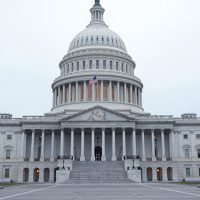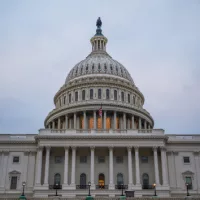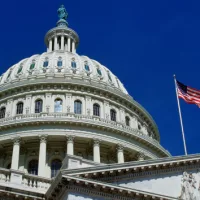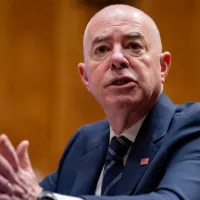
Luka Banda/iStock(WASHINGTON) — Marie “Masha” Yovanovitch, a longtime career diplomat, was serving as U.S. ambassador to Ukraine last spring when she was abruptly ordered home and told that she had lost the confidence of the president. President Donald Trump in a subsequent phone call to Ukraine’s president called her “bad news” and said “she’s going to go through some things.”
On Friday, she got the chance to tell her side of the story as part of the ongoing House impeachment inquiry.
Here are three takeaways:
Trump tweeted against Yovanovitch mid-hearing, Dems accuse him of trying to intimidate the witness
At one point in the hearing, Trump lobbed tweets aimed at her testimony, claiming that “everywhere Marie Yovanovitch went turned bad.”
He noted correctly that the new Ukrainian president “spoke unfavorably about her” in Trump’s phone call with him and that it is his absolute right to put anyone he wants in the job of ambassador – something Yovanovitch herself acknowledged in her testimony.
“Would you like to respond to the president’s attack that everywhere you went ‘turned bad’?” California Rep. Adam Schiff, chairman of the House Intelligence Committee, asked Yovanovitch.
“I don’t think I have such powers,” she said, adding that she believes her and her colleagues have made the places she’s been “demonstrably better.”
Schiff later told reporters he thought Trump’s tactic was “witness intimidation.” During the hearing, he asked Yovanovitch whether such tweets might discourage others from coming forward with allegations of wrongdoing.
“Well, it’s very intimidating,” she said.
“It’s designed to intimidate, is it not?” Schiff asked.
“I mean, I can’t speak to what the president is trying to do,” she said. “But I think the effect is to be intimidating.”
Yovanovitch says she had three contacts with Trump’s personal lawyer, Rudy Giuliani, and remains in the dark as to his motives.
One allegation in the impeachment inquiry is that Giuliani — acting on behalf of the president — sidelined American diplomats and official U.S. policy to pursue a widely debunked theory that corrupt Ukrainian politicians interfered in the 2016 presidential election to help the Democratic candidate, former Sec. of State Hillary Clinton. In the July 25 phone call to Ukraine’s newly elected president, Trump pressed Ukraine to investigate the claim, as well as former Vice President Joe Biden and his son, Hunter.
(While some Ukrainian politicians did support Clinton over Trump in largely public ways, U.S. intelligence and a bipartisan Senate inquiry found that Russian operatives — at the behest of their government — engaged in a far more widespread, invasive and secretive campaign to sway voters in support of Trump.)
According to Yovanovitch, Russian President Vladimir Putin, could have been trying to “throw off the scent” that Russia was behind election interference and create an “alternative narrative” that Ukraine was to blame.
As for Giuliani, who embraced the Russian-backed theory, Yovanovitch said she only had contact with Trump’s lawyer three times and not involving the allegations at hand. She also testified that she never received a request from Democrats to protect Hunter Biden, nor did she try to prevent corruption investigations inside Ukraine.
“I do not understand Mr. Giuliani’s motives for attacking me, not can I offer an opinion on whether he believed the allegations he spread about me,” she said. “Clearly no one at the State Department did.”
Yovanovitch added, “What I can say is that Mr. Giuliani should have known those claims were suspect — coming as they reportedly did from individuals with questionable motives and with reason to believe that their political and financial ambitions would be stymied by our anti-corruption policy in Ukraine.”
Yovanovitch warned that corrupt foreigners will try to exploit the U.S. unless diplomats are supported.
In her opening statement, Yovanovitch described her job in patriotic and inspiring terms. She described being deployed to unsettled countries and thrown into dangerous situations as a diplomat serving the U.S. without the protection of body armor or weapons. In Ukraine, she described going to its border with Russia 10 times to wave the American flag to make clear that the U.S. opposed Russia’s efforts to expand its empire.
Yovanovitch alleged that Trump’s handling of U.S. policy puts America at risk. She warned that the State Department is being “hollowed out from within” and called on its leadership to “stand up for the institution” – a necessary tool in U.S. policy to prevent armed conflict.
She said diplomats also try to convince foreign states to root out corruption and embrace democracy.
“Sometimes we get people really angry with us,” Yovanovich said. “It’s uncomfortable, and we are doing our jobs.”
She later added, “And if they realize that they can just remove us, they’re going to do that.”
When asked if during her 33 years as a foreign service officer if she had ever heard of a president recalling an ambassador without cause and because of allegations the State Department knew to be false, she replied: “No.”
Copyright © 2019, ABC Audio. All rights reserved.















